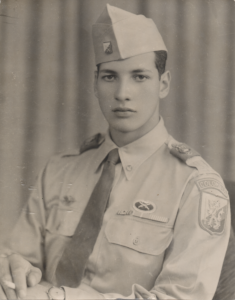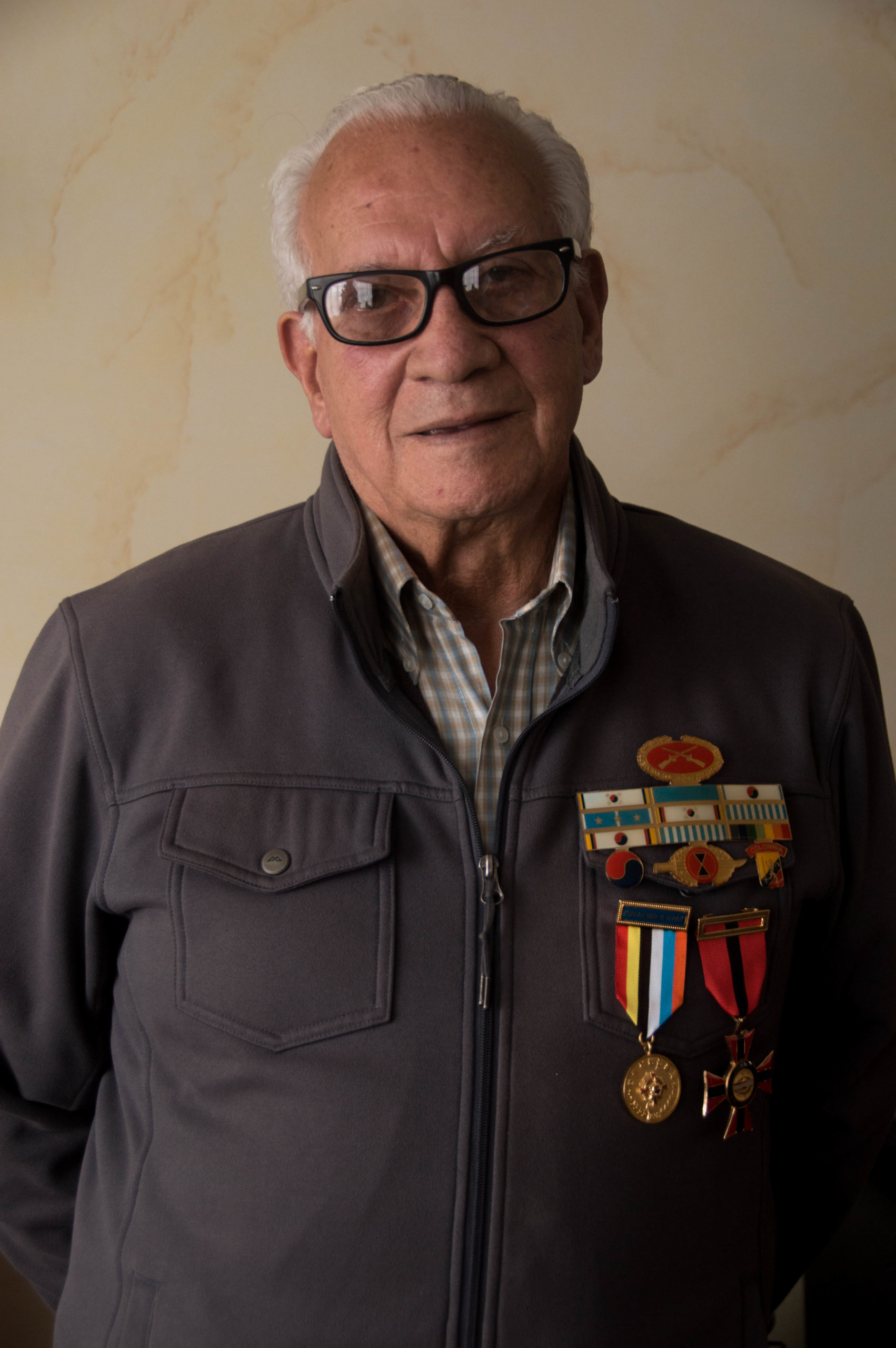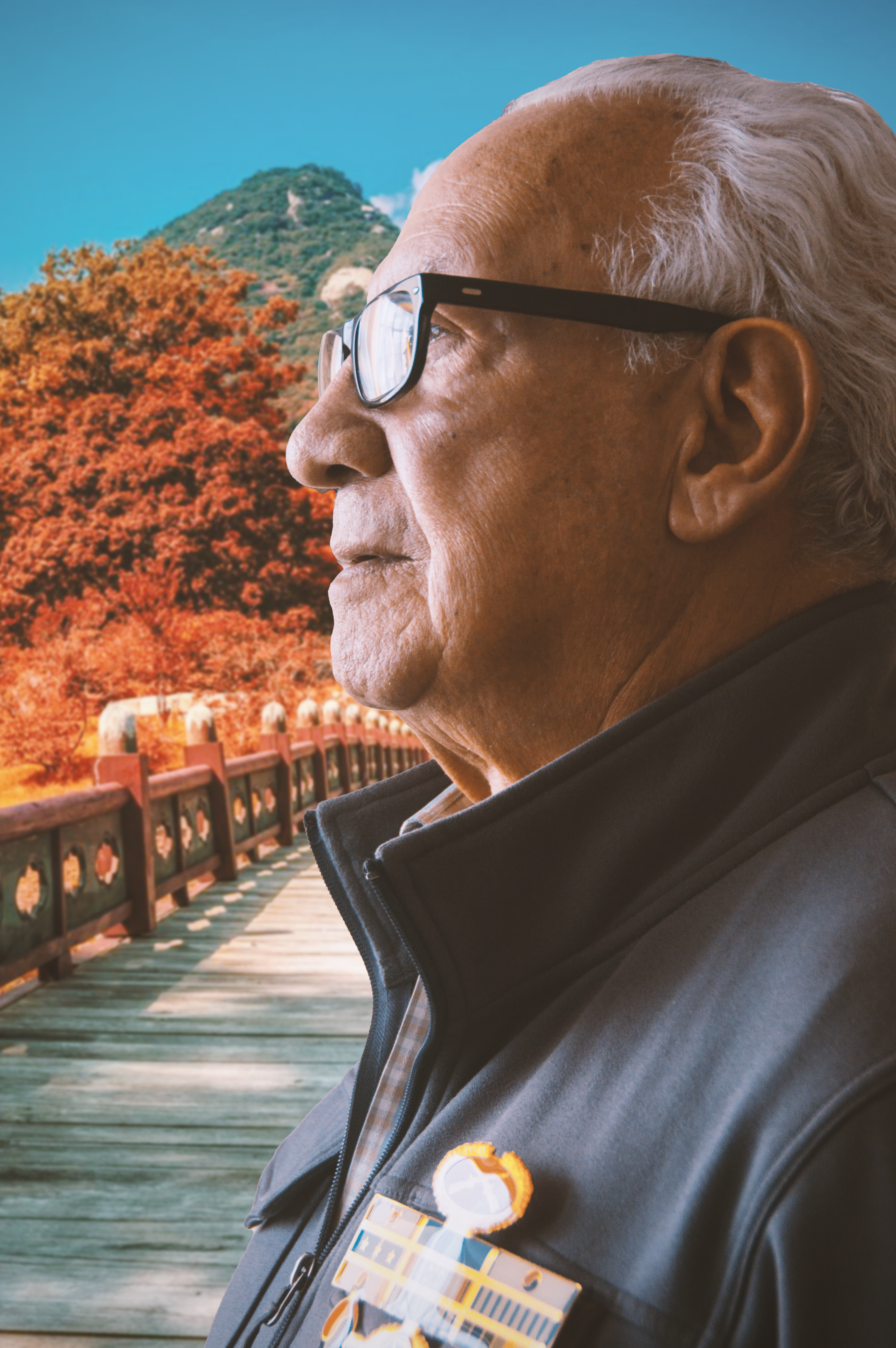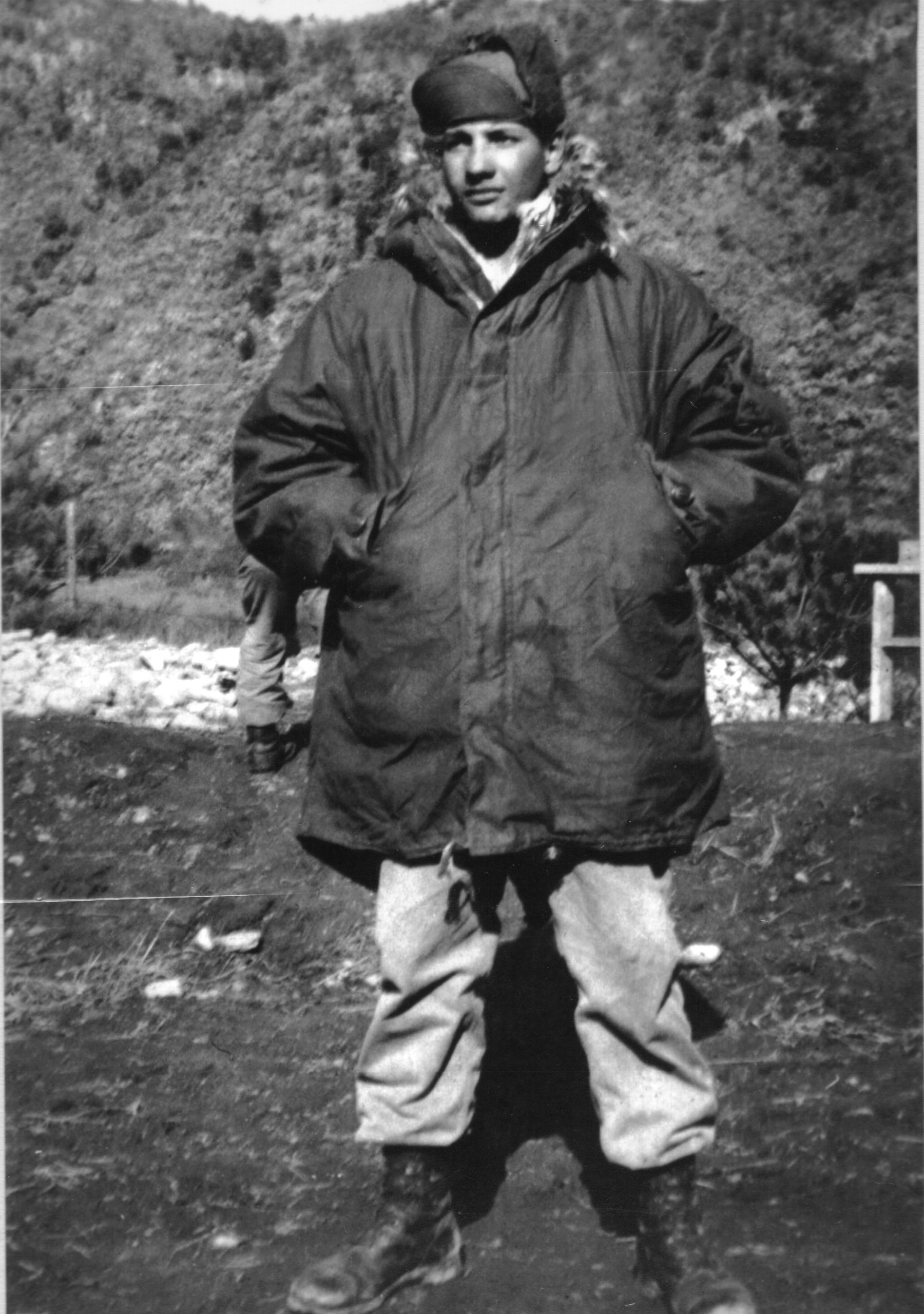
Orlando Bernal
JOSUE ORLANDO BERNAL BIOGRAPHY
Mr. Josué Orlando Bernal García, was 17 years old when he made the decision to render his military service in May 1952; While at the Bogotá infantry school, he voluntarily decided to join the Colombia Battalion to travel to the Republic of South Korea, which at that time was at war with its neighbor North Korea and because Colombia was part of the UN and was also the the only country in Latin America to respond to the call of this international organization.
The pleas of his parents were not worth it, especially his mother who suffered a lot before the decision already made. They traveled with the seventh group of relays in September 1952, the route carried out was: Bogotá-Cartagena-Panama-Hawaii-Yokojama – Japan-Pusang. All this journey was carried out in a general naval ship of the United States.
It was a long journey of almost 28 days on the high seas with mixed feelings and emotions, because on the one hand, knowing unknown lands attracted him, but also thinking about all the consequences that a war brings, but with a strong conviction that the objective was contribute to the defense of the South Korean people and to the world peace.
Once in Pusang, after a few days they took him to join the battalion in which they were in reserve, on October 28th, 1953. He remembers some moments with his dates lived by this war: the attack that the Colombia Battalion made on the “He closed 180 on March 10th, 1953. On March 12th, the Battalion left to occupy Old Baldy, considered one of the most important and dangerous lines of the front.
On March 23th at around 8:00 pm, the outpost of company “C” and part of company “B” of the Colombia battalion commanded by Captain Bahamón and which one Orlando was the radio operator was attacked.
At 9 pm that same day it was attacked on Old Baldy by the enemies (North Korea) with disastrous results since they had 33 casualties, 97 wounded and 30 prisoners of the battalion. On March 24th in the afternoon, they were relieved of that position, leaving the reserve to reorganize the battalion, there were two companies of riflemen and one of commandos, missing one of riflemen.
On March 26th they entered the front line again. On July 25 they reaffirmed the signing of the armistice, which consisted of a non-aggression agreement leaving demilitarized zones, this agreement in Pang Mun Yong and the battalion ends its combat period on this date.
He came back to Colombia on November 1953.
During his participation in the war, he expressed that there were many moments of uncertainty, fear, anxiety and fear at the possibility of dying in combat and not returning to his homeland, but at the same time there were moments of joy and relaxation as it was after signed the armistice because this in one way or another causes joy for all the parties in conflict, so much so that in that reserve soccer competitions were held with the other contingents of the United Nations.
Mr. Orlando said that he wished that there would never be more wars because they bring with them death, sadness, desolation, illnesses in short … and that world peace will reign for the benefit of humanity and that oneday peace will reign in the Koreas, harmony and the bonds of friendship and peace are strengthened.
El señor Josué Orlando Bernal García , tenía 17 años cuando tomó la decisión de prestar su servicio militar en Mayo de 1952; estando en la escuela de Infantería de Bogotá, decidió voluntariamente incorporarse al Batallón Colombia para viajar a la Republica de Corea del Sur que en ese momento se encontraba en guerra con su vecino Corea del Norte y porque Colombia hacia parte de la ONU y además fue el único país de Latinoamérica en acudir al llamado de este organismo.
No valieron las suplicas de sus padres, especialmente de su madre quien sufrió mucho ante la decisión ya tomada . Viajaron con el séptimo grupo de relevos en Septiembre de 1952, la ruta realizada fue: Bogotá-Cartagena-Panamá-Hawái-Yokojama – Japón-Pusang. Todo este trayecto fue realizado en un barco naval general de los EE.UU.
Fue un viaje largo casi de 28 días en alta mar con sentimientos y emociones encontradas, pues por un lado el conocer tierras desconocidas le atraía, pero también el pensar en todas las consecuencias que trae una guerra, pero con fuerte convicción de que el objetivo era aportar a la defensa del pueblo coreano del sur y a la paz mundial.
Una vez en Pusang, luego de algunos días lo llevaron a incorporarse al batallón en que se encontraron en reserva, el 28 de octubre de 1953. Él recuerda algunos momentos con sus fechas vividos por é esta guerra: el ataque que hizo el Batallón Colombia al “cerro 180 en marzo 10 de 1953. El 12 de marzo el Batallón salió para ocupar de Old Baldy considerado como una de las más importantes y líneas peligrosas del frente.
En marzo 23 hacia las 8:00 pm fue atacado el puesto avanzado de la compañía “C” y parte de la compañía “B” del batallón Colombia comandado por el capitán Bahamón y del cual Orlando era el radioperador.
A las 9 pm de ese mismo día fue atacado sobre el Old Baldy por los enemigos (Corea del Norte) con resultados funestos ya que tuvieron 33 bajas, 97 heridos y 30 prisioneros del batallón. El 24 de marzo en horas de la tarde fueron relevados de esa posición, saliendo de la reserva para reorganizar el batallón, quedaban dos compañías de fusileros y una de comandos faltando una de fusileros.
El 26 de Marzo entraron nuevamente a la primera línea. El 25 de julio reafirmaron la firma del armisticio, que consistía en un acuerdo de no agresión quedando zonas desmilitarizadas, este convenio en Pang Mun Yong y el batallón termina en esta fecha su periodo de combate.
Regresó a Colombia en Noviembre de 1953.
Durante su participación en la guerra el expresó que hubo muchos momentos de incertidumbre, miedo, zozobra y temor ante una posibilidad de morir en combate y no volver a su tierra natal, pero a la vez hubo momentos de alegría y de esparcimiento como fue después de firmado el armisticio pues esto de una u otra manera causa alegría por todas las partes en conflicto, tanto que en esa reserva se hicieron competencias de fútbol con los otros contingentes de las Naciones Unidas.
El señor Orlando decía que deseaba que ojalá nunca se dieran más guerras pues ellas traen consigo muerte, tristeza, desolación, enfermedades en fin… .y que ojalá reine la paz mundial para beneficio de la humanidad y que en las Coreas algún día reine la paz , la armonía y se estrechen los lazos de amistad y paz.
MEMORIA DE GUERRA
Josué Orlando was always proud to have served the Colombian military forces and fought for the democracy of the South Korean government.
Josué Orlando siempre se sintió orgulloso de haber servido a las fuerzas militares de Colombia y luchar por la democracia del gobierno de Corea del Sur.

MEMORIA DE GUERRA
Korean War - Key Events
June 27, 1950
The United Nations Security Council adopts Resolution 83, authorizing UN member states to provide military assistance to South Korea. The Soviets, who could have vetoed the resolution, are boycotting the proceedings because the Nationalist government on Taiwan still occupies China’s seat on the Security Council. Seoul falls the following day.
These events are taken from the Encyclopedia Britannica



Comments
Likes 2
You must be a registered user to comment or like - please register to join us!